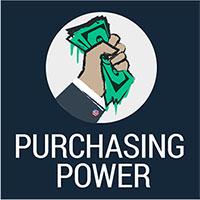New York Attorney General Barbara Underwood sued President Trump this week, claiming that his family foundation has misused of millions of dollars to benefit his businesses and 2016 campaign.
The remarkable case against a sitting president points to a larger issue in our politics: The phenomenon of politicians misusing nonprofits for their own gain is becoming increasingly common, and it spans across geographic and party lines. Instead of just prosecuting these cases individually, we need stronger rules across the board to keep nonprofits in the business of serving public interests — rather than letting them become vehicles for pay-to-play politics.
The lawsuit against the president alleges that the Trump Foundation, which for years has depended mostly on donors other than the family, jointly organized a high-profile fundraiser in 2016 with Trump’s campaign staff. Organizers timed the televised event to coincide with a Fox News debate that Trump skipped with great fanfare, and prominently displayed his “Make America Great Again” slogan, according to the complaint. About half of the receipts, or $2.8 million, went to the family foundation, according to the attorney general. The lawsuit also points to emails showing that Trump’s campaign manager, Corey Lewandowski, directed how the money should be disbursed, pushing for grants to go out just before the Iowa caucuses.
Attorney General Underwood says all this amounts to an illegal in-kind contribution of $2.8 million from the nonprofit to the campaign, and she referred the matter to federal officials. Donations to presidential campaigns are strictly limited in order to prevent corruption; during the 2016 cycle, the cap was $5,400. Corporations, including nonprofits, may not contribute directly to candidates at all. Tax law bans certain forms of nonprofit — including the Trump Foundation nonprofit – from trying to influence politics using the tax-deductible donations they collect.
But the alleged $2.8 million in proceeds to benefit candidate Trump pales in comparison to the reported $26 million or more that another nonprofit with close ties to him has raised to benefit him as president. His senior campaign advisors created and led America First Policies — structured as a social welfare nonprofit that is able take anonymous donations — to promote President Trump and his policies. The group has spent millions of dollars on polling and campaign-style TV ads about signature issues such as the tax overhaul and gutting Obamacare. Lewandowski, who played a key role in directing Trump Foundation funds to serve the Trump campaign, served as senior advisor for America First Policies and raised money for it until just last month. And the president himself has had dinner with the group’s leaders and donors.
These Trump scandals add to the growing list of recent examples of political misuse of nonprofits, by presidents, governors, and mayors from both major parties. In Underwood’s own backyard, New York Governor Andrew Cuomo faced questions when a nonprofit he was affiliated with took $2 million from gaming companies just before he announced his support for boosting gambling.
And there is of course former Missouri Governor Eric Greitens. Greitens resigned earlier this month, just hours after a judge ordered his nonprofit, A New Missouri, to turn over documents that could have proved allegations of illegal coordination with his reelection campaign and revealed the names of his secret donors. Greitens’ resignation prompted the legislative committee looking into the nonprofit to drop the probe, leaving Missourians in the dark about who donated to the then-governor, and what official favors may have been promised in exchange.
The appeal to politicians of raising money through nonprofits is simple: It’s an end run around the strigent rules that their campaigns face, such as disclosure and contribution limits. Nonprofits generally can take unlimited amounts of money from anyone and keep much of it secret, because they are barred from using their funds to support politicians — which in theory eliminates the risk of corruption. But in reality they have become a conduit for big money to influence sitting politicians with virtually no public accountability.
Although some of the activity we’ve seen is illegal under current law, enforcement is weak. It doesn’t look good that a state law enforcement official has to send letters to the IRS and the Federal Election Commission informing them of alleged flagrant violations of the laws they’re supposed to enforce. The alleged joint fundraiser by the Trump Foundation and the Trump 2016 campaign was actually televised.
And with partnerships between elected officials and nonprofits proliferating across the country, occasional investigations of bad apples are not a sufficient safeguard against the risks of corruption and conflicts of interest that arise when donors have secret access to government power. We need to require transparency as a matter of course, not after months or years of costly investigation.
The Brennan Center has proposed overarching reforms that would address this problem. We call for new laws to bring accountability to nonprofits that are controlled by elected officials or their close associates and that spend substantial amounts promoting those officials. Those groups should have to publicly disclose the identities of their major donors and limit the amounts they can take from donors who have concrete business interests before the elected officials they’re giving to support.
These commonsense anti-corruption rules, versions of which New York City implemented last year, can limit the opportunities for pay-to-play politics and keep elected officials accountable to the public.
(Photo: AP)
 |
Purchasing Power: The ConversationThis post is part of the special series designed to provide well-informed commentary, fresh questions, and new answers about the facts of money in politics. Dive in to 'Purchasing Power: The Conversation’ here. The views expressed by blog contributors are the authors’ own and not necessarily the views of the Brennan Center.
|

